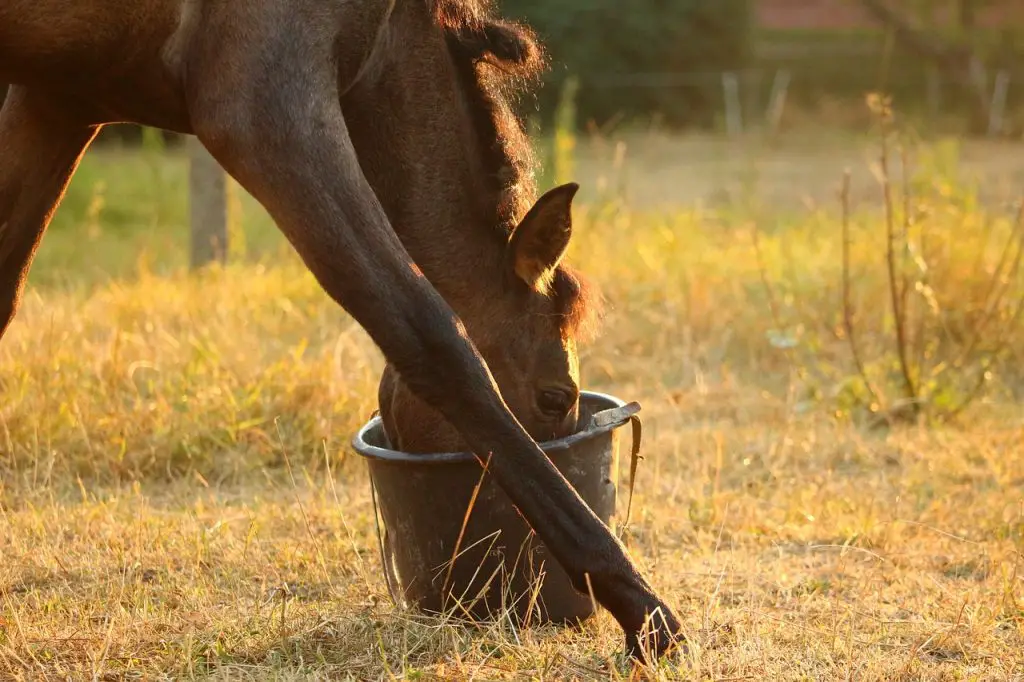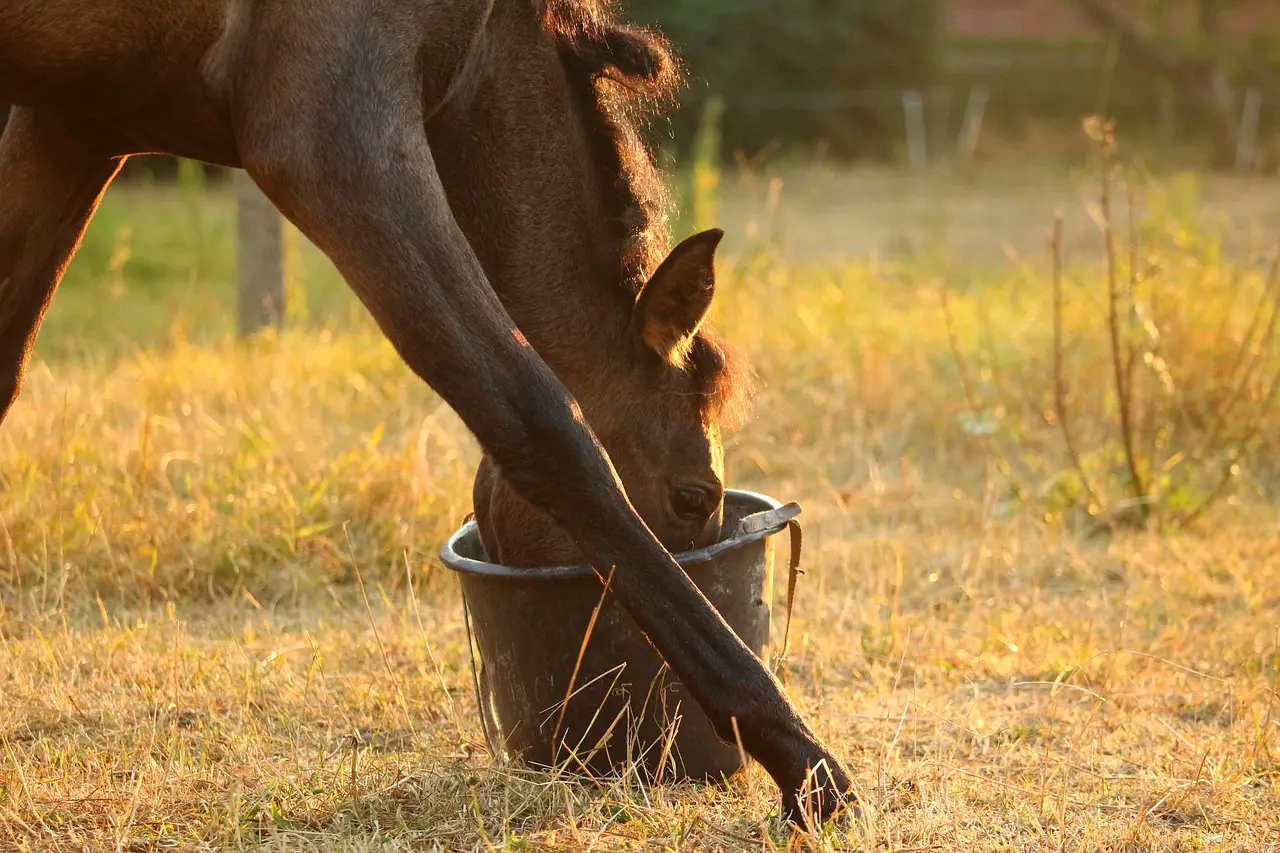Last Updated on February 21, 2022 by Allison Price
As a way of optimizing the health of their horses, more and more owners are turning to herbal remedies. For years, two popular supplements, devil’s claw and turmeric have been used to treat inflammatory symptoms and other degenerative conditions. Recent research has shown that horses treated with these herbs had improved their gastric health.
Louisiana State University researchers chose 12 Thoroughbreds suffering from gastric ulcers. They were given either a treatment or control group. The supplement was given for 28 days. The gastroscopy was performed on days 0, 14 and 28. On each day, researchers scored severity and counted the number of ulcers in the glandular and nonglandular parts of the stomach. During each gastroscopy, the pH of the gastric juices was also recorded.
Researchers found that both nonglandular, and glandular ulcer scores were significantly lower for treatment horses than in control horses. This indicates that the supplement did no harm to gastric ulcers.
This was especially surprising because experts classified devil’s claw a digestive bitter. It stimulates healthy digestion by increasing gastric acid secretions. This finding was particularly interesting because devil’s claw is a digestive bitter, an herb that stimulates healthy digestion by increasing gastrointestinal secretions, including gastric acid.
Also known as grapple plant or harpago ( Harpagophytum Procumbens), devil’s claw is a perennial herbaceous that grows on the ground and is native to southern Africa. The stems are derived from a primary tuber with a taproot that is deep-growing. The flowers are trumpet-shaped. The common name for this woody fruit is because it has long, barred spines. Although extracts are typically taken from the roots or secondary tubers of the plant, other parts may also be used.

Secondary tubers are believed to be the best source of devil’s claw’s primary therapeutic component, harpagide. Although devil’s claw has been used to treat a variety of ailments, including analgesic, anti-inflammatory and digestive effects, there is not much research on its use in horses. A study was done in the mid-1990s on mature horses with bone spavin (a form of degenerative arthritis of the hip) and fed them a mixture of devil’s claw. After 120 days of supplementation, researchers found that the herb mixture was more effective in relieving pain than phenylbutazone (also known as bute).
Turmeric (Curcuma longa L. Turmeric (em>Curcuma longa /em>L), also known as yellow ginger or Indian saffron, can be grown in many parts of Asia, Africa, Thailand and the tropics. The perennial herbaceous turmeric has yellowish-orange Rhizomes (stems that are horizontally underground). Turmeric gives foods a mustard-like aroma, pungent, and slightly bitter taste. Turmeric, like devil’s claw has anti-inflammatory, antioxidant, and anti-clotting properties.
The horse’s health team can decide if a supplement is appropriate for the horse based on its age, usage, and other health issues. High-quality research should back all nutritional supplements. Choose a researched-proven, efficient supplement for gastric health.
Remember that herbal preparations may be prohibited by equestrian federations. Before you give an herbal supplement, make sure to check with the sport’s governing body.



